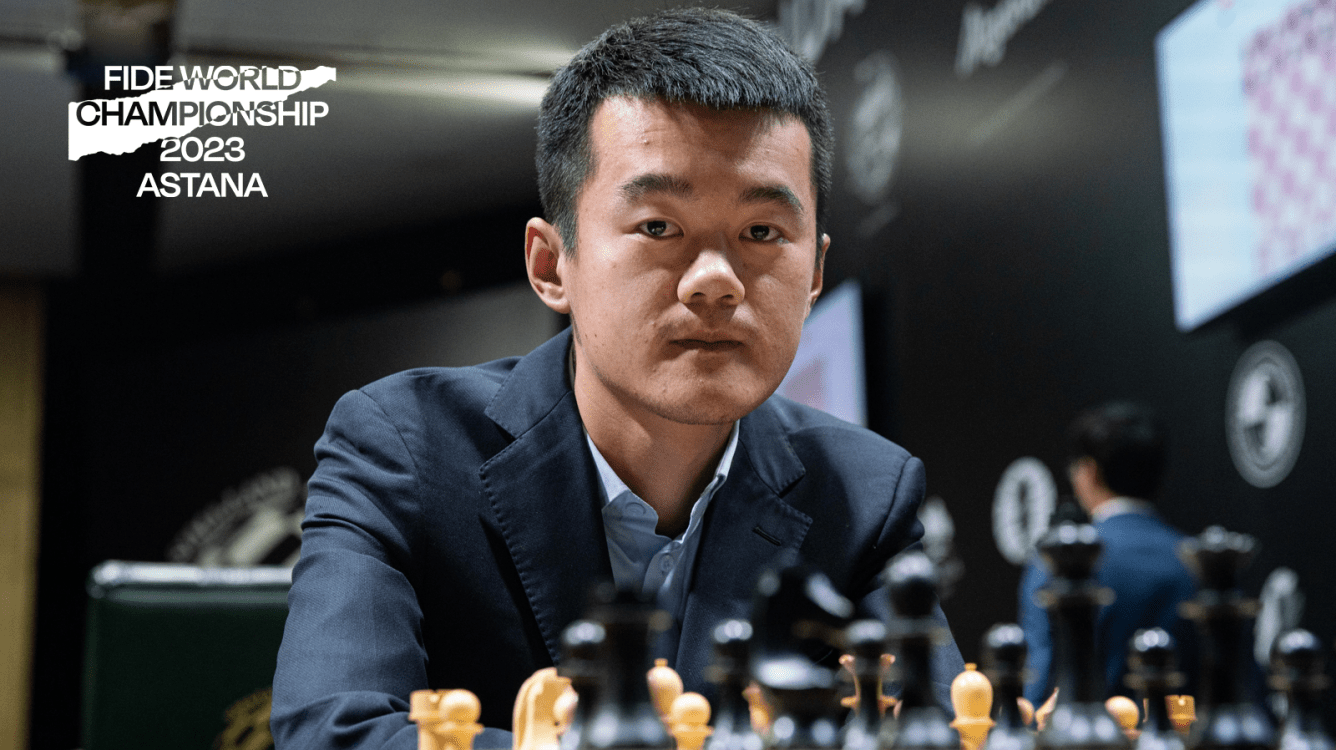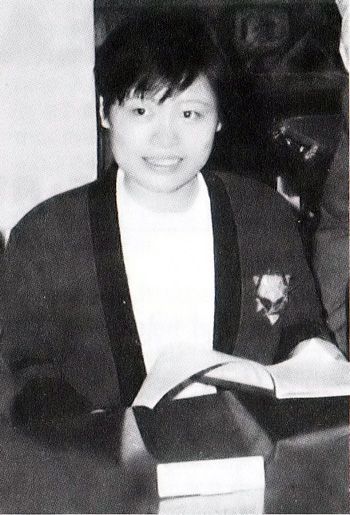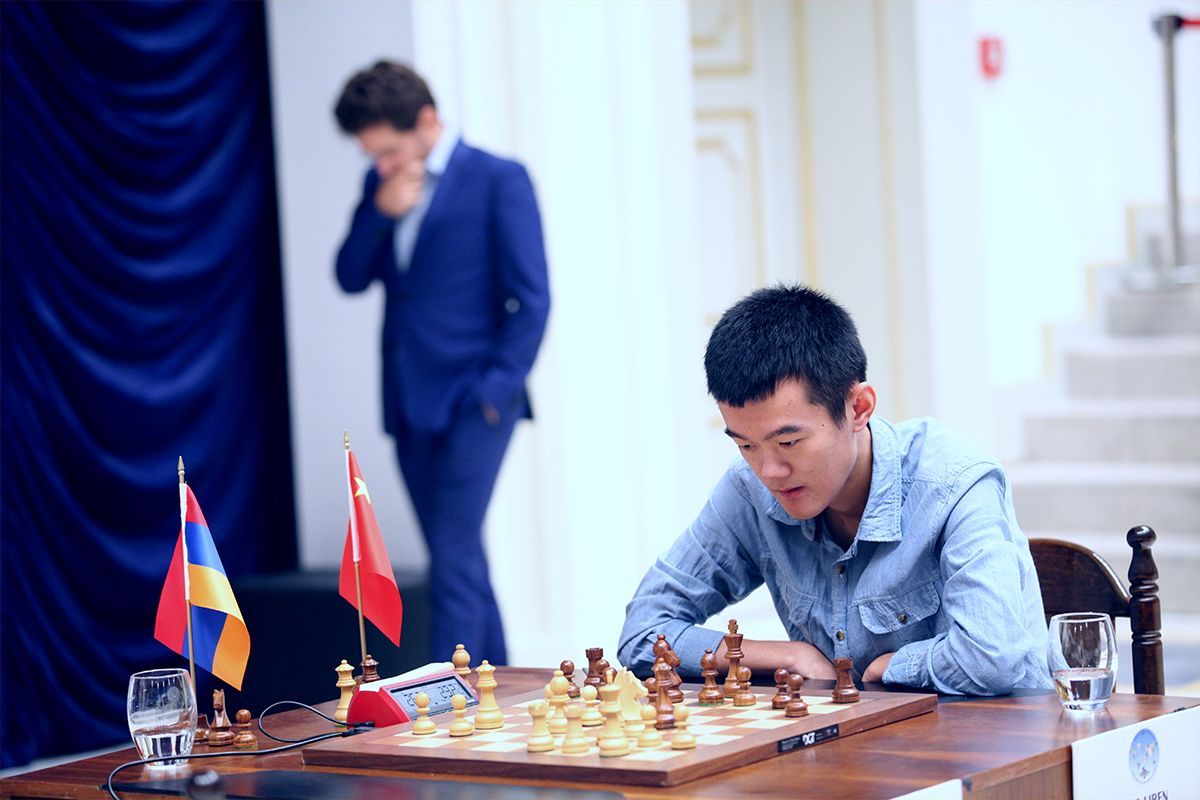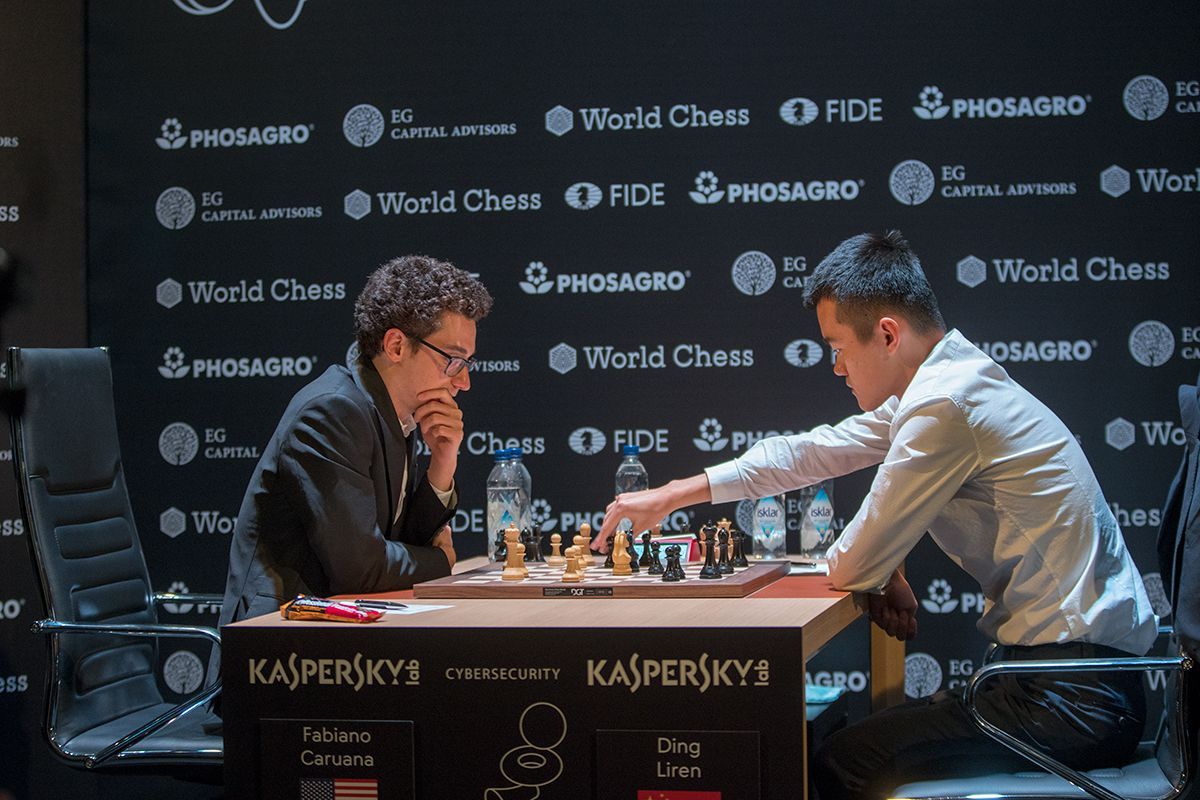
Meet The Challenger: Ding Liren
The 2023 FIDE World Championship will take place in Astana, Kazakhstan, and runs from April 7 through May 1. The match will decide who will be the next world chess champion—GM Ian Nepomniachtchi (Nepo) or GM Ding Liren.
In 2021, the world was introduced to Nepo during his championship match against GM Magnus Carlsen. (Carlsen defeated Nepo convincingly, but decided not to defend his title in 2023.) However, most chess fans know very little about Ding's incredible path to the brink of chess immortality.
Here's everything you need to know about the worthy challenger:
- A Single Step
- Chess Prodigy
- Chinese Chess Champion And Grandmaster
- First Encounter With Nepo
- World Championship Candidate
- The Heir Apparent
- Isolated Pawn
- Good Fortune
- Want To Know More?
A Single Step
Ding Liren was born on October 24, 1992, in Wenzhou, a prefecture-level city in southeastern Zhejiang province, People's Republic of China. According to the city's official site, "Wenzhou was a prosperous foreign treaty port, which remains well-preserved today. It is situated in a mountainous region and, as a result, has been isolated for most of its history from the rest of the country, making the local culture and language very different from those of neighboring areas." Wenzhou also has a very rich chess history and culture.

In 1995, chess legend GM Viktor Korchnoi traveled to Wenzhou to play a match against women’s world champion GM Xie Jun. This match garnered so much local excitement that China declared Wenzhou “The City of Chess.” The next year, Ding’s parents enrolled him in the local chess club to learn the royal game. This single step would lead their son on a journey of a thousand miles to the 2023 FIDE World Championship.

At the Wenzhou Chess Association, Ding became a pupil of legendary chess coach, Chen Lixing. He has mentored and trained many chess prodigies from Wenzhou. They include GM Zhu Chen, who defeated GM Alexandra Kosteniuk in 2001 to become China’s second women’s world champion. As well as GM Ye Rongguang, China's first grandmaster. Ding’s formative years under Chen Lixing’s tutelage were pivotal to his long-term chess development.
Chess Prodigy
Ding’s earliest tournament success came in the Li Chengzhi Cup, which is akin to China’s national junior chess championship. During his summer and winter school breaks, Ding competed against the best junior players from other Chinese provinces. He played extremely well and won his age group’s event many times. These strong performances solidified Ding's status as the next Chinese chess prodigy.

Ding found immediate success competing in international events against the top junior players in the world. In 2003 and 2004, Ding tied for first place at the U10 World Youth Championship and U12 World Youth Championship, respectively. (However, in both tournaments he finished in second place on tiebreaks.) Most notably, Ding defeated a young GM Wesley So in a brilliant attacking game.
Chinese Chess Champion And Grandmaster
Unequivocally, Ding's breakthrough performance was at the Chinese Chess Championship in May 2009. The 12-player field included many strong grandmasters, including GM Wang Hao, GM Bu Xiangzhi, and future women's world champion GM Hou Yifan. Ding—who was just 16 years old and rated 2458 FIDE—shocked the chess world by winning the tournament. With this groundbreaking performance, Ding became the youngest Chinese chess champion in history. He also earned his third and final norm required to become a grandmaster with the performance.

First Encounter With Nepo
In August 2009, Russia and China played a friendly match in Sochi, Russia. At this time, Nepo was 19 years old and Ding was 16 years old. They played one classical, two rapid, and two blitz games during the match. The reigning Chinese champion scored a meager 0.5/5.0 against his new Russian rival. While a friendly match, it was surely a sobering defeat for Ding. (Nearly ten years later on his 13th try, Ding finally defeated Nepo for the first time.)
World Championship Candidate
Ding won the Chinese Chess Championship for the second and third time in 2011 and 2012, respectively. He was also a key member of China's 2014 Chess Olympiad team, which was the first Chinese men’s team to win the gold medal. (The Chinese women had already won 4 team gold medals.) By 2017, Ding's success transcended China and he finally made his mark among the world's elite.

Ding won the 2017 Moscow Grand Prix tournament over a strong field that included GM Shakhriyar Mamedyarov and GM Hikaru Nakamura. (Nepo finished in a distant 15th place.) More importantly, Ding qualified for his first Candidates Tournament by reaching the final of the FIDE World Cup 2017. His World Cup performance included impressive wins over GM Richard Rapport in the quarterfinals and So in the semifinals. GM Levon Aronian emerged victorious in the final, but Ding still qualified for the Candidates as the runner-up.

The Heir Apparent
Ding's first appearance in the Candidates Tournament 2018 was a success, even though GM Fabiano Caruana won first place with a brilliant performance and became the challenger. However, Ding finished in fourth, ahead of former world champion GM Vladimir Kramnik, GM Alexander Grischuk, So, and Aronian. He was the only player in the field—including Caruana—to go undefeated.

Ding carried the momentum of his strong Candidates performance into his greatest challenge yet. He traveled to the United States to compete in the 2019 Sinquefield Cup in Saint Louis. The field included all the best players in the world, including World Champion Magnus Carlsen.
Remarkably, Ding finished the tournament tied in first place with Carlsen; therefore, the two played a rapid and blitz tiebreak. After drawing both rapid games, Ding defeated Carlsen in consecutive blitz games to claim first place. In recognition of this incredible feat, the chess world anointed Ding the heir apparent to Carlsen's throne. It appeared nothing could stand in Ding's way.
Final moments of blitz game 2 pic.twitter.com/8uT9I3xj0r
— Grand Chess Tour (@GrandChessTour) August 29, 2019
Isolated Pawn
Ding finished runner-up again at the FIDE World Cup 2019. Thus, he qualified for the Candidates Tournament 2020, which was scheduled to take place March 16 to April 4, 2020. Ding was the presumptive favorite to become the next challenger, but the odds quickly turned against him.
Ding was forced to quarantine from his team of seconds and had to prepare alone for the most important tournament of his career. Ding also had to arrive early in Yekaterinburg, Russia, so that he could self-quarantine for two weeks prior to competing. Unsurprisingly, Ding lost in the first two rounds of the Candidates, which immediately ended his hopes of qualifying for the world championship match.

Ding could not travel outside of China for a long time, so he was unable to participate in the qualification cycle for the Candidates Tournament 2022. However, at the last moment, a vacancy materialized after FIDE disqualified GM Sergey Karjakin for breaching its code of ethics. The rules stated that Karjakin's replacement would be the highest-rated player who had not already qualified. (This was Ding at 2799 FIDE.) After meeting the minimum games requirement with the help of the Chinese Chess Association, Ding qualified for the Candidates in Barcelona, Spain.
Good Fortune

Carlsen's eventual decision not to defend his title for a fifth time enormously raised the stakes for the Candidates. There was not just one, but two seats up for grabs. Nepo dominated the field and won the Candidates for the second cycle in a row. However, the battle for second place was hotly contested between several players. In the end, it all came down to a final-round encounter between Ding and Nakamura.
With his dramatic victory over Nakamura, Ding finished in second place and punched his ticket to play Nepo in the 2023 FIDE World Championship!
Want To Know More?
After reading this article, we know you love Ding and want to learn even more about him!
Here are some more interesting facts:
- His father, Ding Wenjung, is an electrical engineer. His mother, Ye Xiaoping, is a hospital nurse.
- 'Ding' is his family name and 'Liren' is his given name. He prefers to be called Ding Liren, or simply Ding.
- Ding's parents named him 'Liren' after their favorite Confucian saying: "If you want to be healthy, make others healthy."
- He received a law degree from Peking University in Beijing.
- Ding loves to read and his favorite hobby is studying Chinese literature.
- Incredibly, Ding went undefeated in 100 classical chess games from August 2017 to November 2018. During this streak, he recorded 29 victories and 71 draws. (Carlsen eventually broke his record.)
Of course, the best way to meet any chess player is to play them! Before the 2023 FIDE World Championship, be sure to play Chess.com's new Ding Liren bot. (Assisted mode is highly encouraged.)
Are you rooting for Ding Liren to become the next world chess champion? Let us know in the comments below!
| Tom Shupe, founder of MVP Chess and Chess.com Coach of the Month, is an active tournament player with a peak USCF rating of 2025. An award-winning writer, his work has been published in print by American Chess Magazine and online by Chess.com. Follow his chess insights and streams on Twitch and YouTube. |







